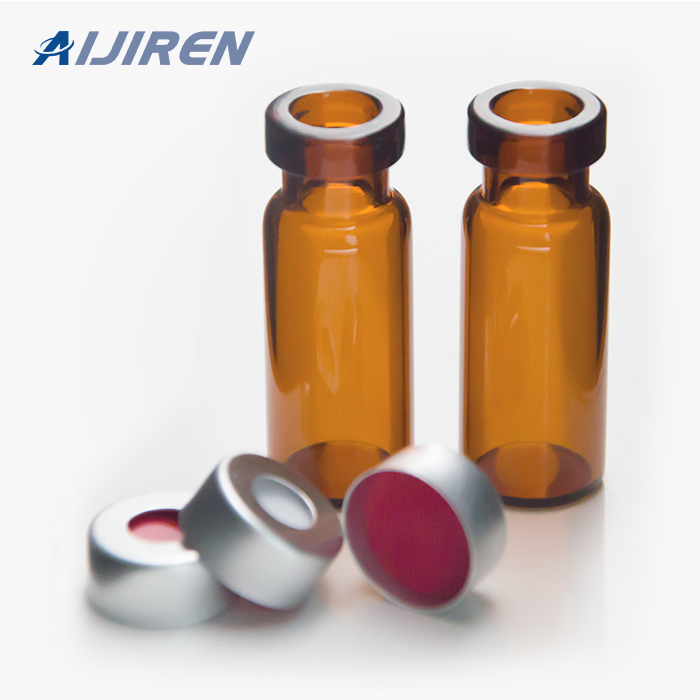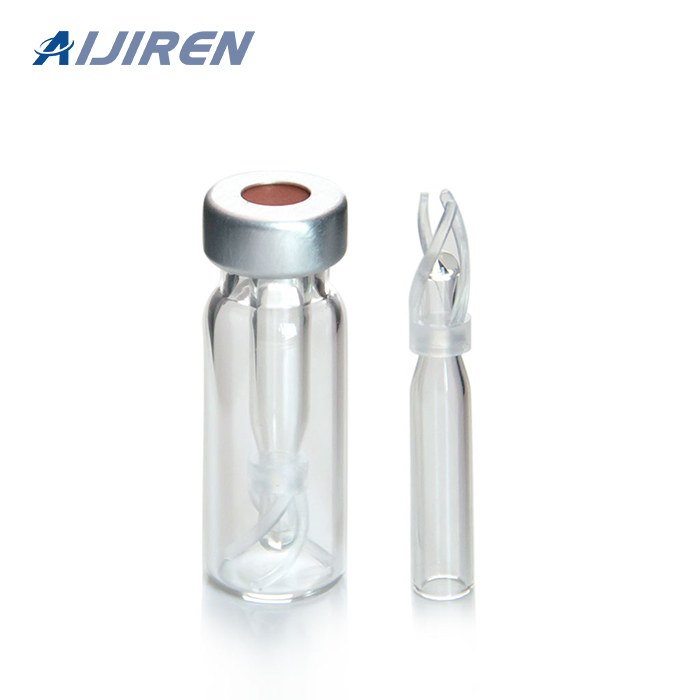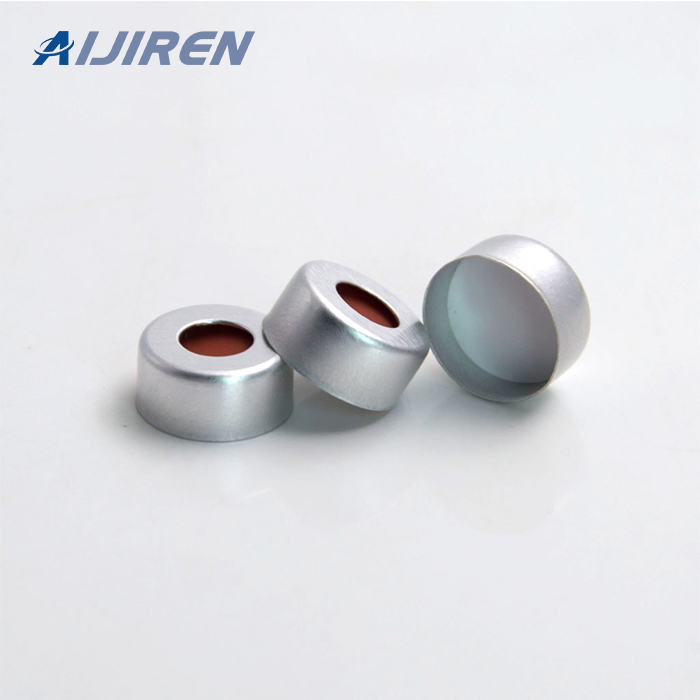





Jul 2, 2013 · Repeat steps 4 and 5 for flask 2. Purge the syringe by inserting the needle through the septum of the solvent flask and into the headspace of the flask. Draw up the inert atmosphere into the syringe. Remove the needle from the flask and expel the gas from the syringe (Fig. 14, D). Repeat 3–4 times.
Your Price: $110.95. SKU 276760. Units per Package: 72. 60 mL, Clear, EPA/VOA Vials - Polypropylene Open Top Caps and Septrseal Teflon®/Silicone Septa; 2000 Class (SciSpec precleaned and washed to EPA Protocol "B") Please call 800-648-7800 for bulk or volume pricing. Add to Cart to Change Quantity. Add to Cart.
Polyethylene septa are not resealable and intended for single injection use. Polypropylene (PP) Septa: Chemically resistant polypropylene septa are available as 0.01” thick disks inserted into aluminum crimp seals. The surface for needle penetration is 0.01” thick allowing for use with thin gauge needles. Polypropylene septa are not
Polytetrafluoroethylene ( PTFE) is a synthetic fluoropolymer of tetrafluoroethylene and is a PFAS that has numerous applications. The commonly known brand name of PTFE-based composition is Teflon by Chemours, [3] a spin-off from DuPont, which originally discovered the compound in 1938. [3]
Teflon PTFE/Silicone Septa: The Teflon® PTFE/Silicone septa resists coring and is recommended when multiple injections are required. This .125" septa has excellent resealing qualities. Plastisol Lined Metal Caps: Metal caps with a Plastisol liner offer excellent resistance to mild acids as in food products.
Wheaton headspace vials accept 20 mm aluminum seals Rounded shoulders and bottoms, allowing for even heating and safer operation at higher pressures Manufactured from Type I borosilicate glass Top provides a tighter seal with your septa O.D. x Height: 23 x 75 mm Capacity: 20 mL. Related Products: 20 Ml Glass Vials. Compare this item.
Jun 4, 2013 · Seal vessel with a greased, ground-glass stopper. Rubber septa should not be used as they do not hold a vacuum as well and can be sucked into the flask, exposing it to air. Rubber septa are also difficult to remove from inside a flask. Ensure tap H is open (Fig. 8). Open tap B to vacuum (Fig. 8). Wait 10–30 s depending on the size of the vessel.
compatibility, effective sealing/resealing and low penetration force make PTFE/silicone septa suitable for all types of chromatographic applications. A thin film of PTFE is laminated to the side of the septum that faces the sample to limit exposure of the elastomer to the solvent. PTFE/Silicone septa are ideal for use in most HPLC and
2-056 PTFE/Natural Red Rubber PTFE Natural Red Rubber are moderately priced seals for GC and HPLC with good chemical properties. They are ideal for multiple injections due to high resealability, but not as easy to penetrate as PTFE/RR. Natural rubber septa are offered assembled into aluminum crimp seals. PTFE/Synthetic Red Rubber Septa: (PTFE/RR)
Septa selection guide Overview Diferent septa material for LC and GC applications There are many diferent types of materials used to produce the septa found in LC and GC vial caps. This document will provide you with the technical guidance you need in order to make the right selection. Choosing the right septa
Tube Caps and Closures. Plugs and caps of various material compositions, sizes, colors, and closure types to fit a wide range of tube types; may be sterile, non-sterile, and/or autoclavable; may possess leak-preventing features including O-rings and cap liners.
Techne (Cole-Parmer) coupling attached to underside of cap. Cap is plastic with a Teflon® liner and silicone rubber gasket which seals against the mouth of flask. Both liner and coupling are removable from cap. Side arms and ports have plastic screw caps with silicone rubber liners. 9382E50 through E65 have two.
Tuf-bond Septa (9711D10 to D45) Thickness: 100 mils Of silicone rubber with PTFE facing 10 mils thick Septa of butyl rubber, silicone rubber or rubber-laminated PTFE are available on special order. Septum diameter indicated in listings. Compare this item.
The Finneran 9 mm septa in white color, is mainly used with screw thread closures for tight sealing of the stored sample. It is mainly used in research laboratories or in chemical industries. This septa is made of sturdy PTFE material which ensures long lasting usage and durability. Compare this item.
Aijiren Tech Nalgene. Teflon® FEP Bottles RCF to 4,000 x g Withstand temperatures from -100° to +150°C Flat bottoms Autoclavable bottles have an 80% capacity (approx. 200 mL) in refrigerated centrifuges. Bottles include 38 mm Tefzel® ETFE screw caps. Dimensions (o.d. x H, mm): 62 x 122.